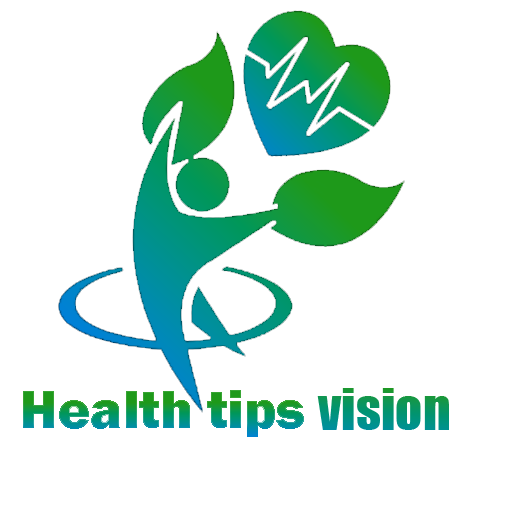How Would You Rate Your Anxiety?
Understanding how your anxiety relates to others is a prerequisite for treating anxiety. Take this 7-minute free anxiety exam to learn your anxiety score and get therapy suggestions.
How to Quit Worrying Right Away
Anxiety can make life very challenging. You must avoid letting the symptoms control you indefinitely. You must decide wisely and dedicate yourself to long-term care. You may start reducing your anxiety by using the ten tactics listed below.
Regulate Your Inhalation
Breathing disorders are frequently associated with severe anxiety symptoms. Poor breathing habits are a common cause of anxiety in both men and women, and they can exacerbate many of the most distressing symptoms of anxiety.
The answer lies in respiratory control, which differs from what you may assume. You should slow down and minimize your breathing, not speed it up or attempt to take deeper breaths, even if you cannot. Breathe more slowly and deliberately, employing the following technique:
Take five to seven slow, gentle breaths in through your nose.
For roughly three or four seconds, hold.
Breathe slowly and softly for seven to nine seconds while keeping your lips pursed as though you’re whistling.
Repeat this practice ten to twenty times. By using this breathing technique, you may prevent hyperventilation, a common issue among anxious people, and restore the proper balance of carbon dioxide in your body, which is responsible for many of the most severe symptoms of anxiety.
Having a Friendly Conversation with someone
speaking, especially over the phone, with someone you like and trust is another highly successful tactic. Don’t be afraid to admit your anxiety to them and give an explanation of how you’re feeling.
Speaking with kind, understanding individuals takes your mind off of your symptoms, and having friends and family there to support you gives you even more self-assurance. It also gives you greater confidence if something were to happen to you when you’re having a panic attack.
Do Some Aerobic Exercises for your body
your body produces a lot of adrenaline when you’re anxious. Enhancing your anxiousness can be achieved by channelling your adrenaline towards physical activities. There are several benefits of exercising to manage your symptoms of anxiety. Stress chemicals that cause anxiety symptoms are eliminated by exercise. Your brain produces endorphins when you exercise, which can elevate your mood. Improved breathing is correlated with exercise. Working out is a constructive diversion. Mild running can significantly lessen the intensity of your anxiety symptoms and the anxiety itself.
Discover Your Relaxation Source

you already have things in your life that help you unwind. To assist you in remembering it when anxiety attacks, you might find it helpful to compile a list of the things you like to do and find relaxing. Turn to those hobbies when you feel your anxiety starting to rise to help stop symptoms before they get worse. For instance, if you find that taking a warm bath enables you to unwind, don’t hesitate to prepare yourself a bath, light some candles, add some pleasant aromas, and jump in. If taking a bath, a shower, skipping stones in a park, or getting a massage helps, don’t let your anxiety get the better of you; instead, take action right immediately.
Essential oils and aromatherapy
Plant extracts known as essential oils have been used for thousands of years to treat various ailments, including anxiety. Essential oils stimulate specific brain regions and release feel-good neurotransmitters like serotonin. They have been shown to enhance mood and sleep and lessen the symptoms of depression, anxiety, and stress.
Diffusing, inhaling, or using topical treatment are suggested methods for addressing anxiety symptoms. To fill your space, use the ideal smell blend—a combination of several oils. One can use an essential oil diffuser or dab a few drops onto an object.
The skin in places like the carotid artery in your neck, the back of your neck, your wrists, above your heart, and behind your ears. A healthy adult’s recommended dilution is usually 2%, which entails combining two drops of essential oil with one teaspoon of carrier oil (olive, grape seed, almond, jojoba, or avocado oil are some examples). Although diluting critical oils is advised for all of them, many choose their amount and whether or not to do so. Also, a more substantial dilution is highly recommended for infants, older adults, sick people, and small children.
Make sure the essential oils you use are pure and haven’t been combined with any chemicals. Applicable brands to consider are Doterra, Young Living, Plant Therapy, and Mountain Rose Herbs. To identify a brand that best suits your needs and financial situation, you can conduct your study. Since you usually only use a few drops at a time, remember that an essential oil bottle will last a very long time.
The following essential oils are excellent for relieving anxiety:

Cedarwood Lavender
Bergamot
Valerian chamomile Frankincense
What else could be causing this anxiety?
Try this 7-minute, free anxiety test to learn more about your anxiety and get statistics and information: See how your anxiety stacks up against others and learn what you can do to address it by taking our anxiety test today.
Discover How to Control Your Worrying Thoughts
Anxiety is not a random phenomenon. Anxiety attacks are frequently caused by your mind spiralling into unfavourable ideas, frequently without your control. By ignoring these ideas and learning to ignore anxiety-inducing triggers, you can occasionally manage your anxiety.
However, there are a variety of approaches you might take that might work. Among them are:
A List of Questions
Keep a list of questions ready for when you encounter anxiety so you know what to ask yourself. You’ll discover that your ideas get more grounded the longer the checklist is. Some questions you may use are:
Is there cause for optimism?
Verses
Although they are not for everyone, affirmations benefit those who employ them. You can use affirmations as a coping mechanism by telling yourself nice things. Among them are:
I’m doing fine. This is simply anxiety, and I will overcome it.
I’m happy with my life and excited for tomorrow.
I won’t let my anxieties rule me.
Acclimating to Physical Indications
Many of the thoughts that cause anxiety are reactions to bodily events rather than thoughts in and of themselves. This is particularly true if you have panic attacks, which are episodes of extreme anxiety and panic brought on by a physical sensation. Your mind will no longer associate the symptoms with your panic attacks if you become accustomed to them when you’re not feeling anxious.
Play some upbeat music.
You can feel the impact of music on anxiety and mood quite strongly. But it’s essential to do more than pick tunes you enjoy. However, you should also ensure the music you’re listening to reflects the emotions you wish to experience. Listening to upbeat or calming music can immediately affect your feelings and attitude.
While listening to angry music when you’re angry or sad music when you’re sorry can be comforting to many, the truth is that these kinds of music will help you connect with your negative feelings. You won’t feel any better doing it. It would help if you listened to music that will make you feel the way you want to when you’re attempting to stop anxiety.
Study Grounding Methods
Understanding how to ground yourself and feel more in control during a panic attack or anxious mood can be pretty beneficial. You can practice these two widely used techniques for grounding yourself while you are not experiencing anxiety so that they come quickly and naturally to you when symptoms occur.
You can learn to relax using the progressive muscle relaxation technique. Individuals who suffer from anxiety frequently carry stress in their bodies all day. You may fight off anxious feelings as they emerge by learning how to let go of that tension and feel at peace. The goal of this workout is to tense specific muscle groups and
Body Scan: This grounding technique helps you become more conscious of your body and its internal processes. The sensation you perceive is there (tingling, warmth, tightness, etc.) rather than the emotions of good, harmful, painful, enjoyable, etc.
To do this exercise, you just need to lie down and breathe for a minute. Feeling the surface you are on, start with your back. Next, focus on one foot and feel the feelings as you slowly raise your leg. Then, shift to the other foot and continue to raise your leg, feeling your way up to your hands, arms, stomach, and finally, the top of your head.
Make Love
“When I get that feeling, I want sexual healing.”
It is not fictitious. Having sex may be immensely relaxing. It’s a mentally stimulating physical activity that makes you feel less stressed and more at peace by releasing endorphins. It’s acceptable to ask a special someone in your life if they would like to partake in some romantic activities if they are aware of your anxiousness. The two of you should come to an agreement that allows you to let go of some sexual energy and may even strengthen your bond in the process to make you feel less anxious.
In case you don’t have someone with whom you feel at ease, indulging in self-gratification might also serve as a means to
Existing in the Present
Finally, you can reduce worry by learning to live in the present. Realizing that anxiety is a typical aspect of life is crucial. It’s something that every individual goes through. When anxiety becomes unhealthy, it gets in the way of day-to-day activities. You lose sight of the present when your attention is fixed on your anxieties and fears about the future. Instead of attempting to live in general, every day becomes an attempt to live with anxiety. It’s crucial to come to terms with your anxiety while still making an effort to lead a fulfilling life.
It’s interesting to note that if you can develop the mentality of allowing yourself to feel dread while still attempting to enjoy your life, you will
Reducing Anxiety Permanently

Anxiety cannot be quickly cured, and good anxiety is a regular aspect of being human. It becomes an issue, though, when anxiety starts to interfere with day-to-day activities. Acknowledging your symptoms and triggers and attempting to control them is a wise first step. It’s critical to seek therapy to address the underlying causes of your anxiety. Additionally, acquiring constructive coping mechanisms like those covered above can put you on the right path to reducing symptoms and living a more contented, healthier life.
Typical signs of anxiety disorders consist of:
I’m anxious
feeling incapable
a feeling of impending danger, panic, or disaster
elevated heart rate
Excessive breathing
Trembling and Sweating
Considering the panic trigger incessantly
These uncontrollable emotions of panic and worry might make daily tasks challenging. They can also make you avoid specific locations or circumstances because they are disproportionate to the real threat.
You should speak with your doctor if your anxiety is seriously affecting your relationships and overall quality of life. Your healthcare physician can help rule out any underlying physical health concerns before referring you to a mental health specialist. Although the majority of individuals with anxiety disorders require medication or psychotherapy to manage their anxiety, coping mechanisms and lifestyle adjustments can also have a positive impact.
Here are eleven strategies to manage an anxiety disorder:
Continue your physical activity.
Make a plan that will enable you to work out most days of the week. Exercise is a great way to decrease stress. It can also lift your spirits and support your well-being. After starting out modestly, step up the quantity and intensity of your activities little by little.
Anxiety may be exacerbated or caused by certain drugs. See your doctor or look for a support group if you are unable to stop on your own.
Give up smoking and reduce or give up caffeine-containing drinks.
Caffeine and nicotine both exacerbate anxiety.
Employ relaxation and stress-reduction methods.
Examples of relaxation methods that help reduce anxiety include yoga, meditation, and visualization exercises.
Put yourself to sleep.
Consume wholesome meals.
Further research is required, but a diet rich in fruits, vegetables, whole grains, and seafood may be associated with a lower level of anxiety.
Study up on your illness.
Please consult your healthcare professional to determine the best course of action for treating your particular ailment and what may be causing it. Engage your loved ones and friends and solicit their assistance.
Adhere to your prescribed course of action.
Adhere to the directions on medicine. Remember to attend treatment sessions and finish any homework your therapist assigns you. It’s essential to be consistent, particularly when taking your prescription.
Determine the triggers.
Find out what triggers your stress or makes you feel more anxious. To ensure you’re prepared, practice the techniques you created with your mental health physician.
How to Quit Worrying Right Away
Periodically experiencing anxiety is a typical response to not knowing what will occur next, whether it be in the next few minutes, days, or months.
Mental health professionals define anxiety as concern over a potential threat to oneself. For example, just thinking about it days before the conversation could make your stomach knot. Before a presentation or exam, your heart can race. You may have nightmares of getting COVID-19 when shopping for groceries.
It’s also common to desire to eliminate those uneasy, pit-of-the-stomach sensations as soon as you can. Rosmarin, PhD, an associate professor of psychology at Harvard Medical School in Boston, says such a strategy may increase your anxiety.
“You’re telling your nervous system that there’s more reason to be nervous when you focus on eliminating your anxiety. And that exacerbates your anxiousness,” he adds.
Persistent and interferes with your day-to-day activities. If so, you could require medical attention to get over it.
Reduce Anxiety by Acknowledging It
People are surprised to hear this. However, according to Rosmarin—who also founded the Centre for Worry in New York City—accepting occasional worry is one of the best strategies for reducing it.
Ironically, anxiety decreases when we allow it to pass through a time without attempting to control it. However, he claims that resisting worry usually sets off a panic attack.
Additionally, you will always be terrified of anxiety if your main tactic is to ignore it or stay away from situations that make it worse. You’ve never learned how to cope with it; therefore, the bully in the schoolyard will always be there. The American Association for Anxiety and Depression
Use a mantra: According to Kissen, a mantra might help you divert your attention from racing, worried thoughts. She particularly likes the sayings, “This, too, will pass,” and “These thoughts are uncomfortable, but not dangerous.”
Schedule your anxiousness: Choose 15 minutes to reflect on your fears during the day. Tell your brain to go for it and allow the nervous thoughts to come during that period, advises Kissen. If they wake up before that time, however, tell them, “I’m willing to hear you, but come back tomorrow at 3 p.m.”
If anxiety prevents you from sleeping, get up: “If you find yourself worrying for longer than five minutes while lying in bed, get up, walk to another room,







